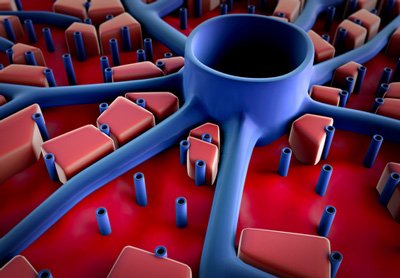Scientists discover immune system blind spot in hepatic cirrhosis
Posted: 20 July 2016 | Victoria White, Digital Content Producer | No comments yet
The discovery could lead to new treatments for bacterial infections, a leading cause of death in hepatic cirrhosis, without the need for antibiotics…


Scientists have discovered the processes behind the attenuation of the immune system in patients with hepatic cirrhosis.
The discovery, made by Dr Zeinab Abdullah of University Hospital Bonn and Prof. Dr Percy Knolle from the Technical University Munich together with colleagues from the University of Bonn and the RWTH University Hospital Aachen, could lead to new treatments for bacterial infections without the need for antibiotics. Approximately one-third of the fatal cases of hepatic cirrhosis are attributable to bacterial infections.
In mice suffering from liver cirrhosis, the scientists observed a sustained production of Type-1 interferon in response to the intestinal bacteria by immune cells responsible for defence against infection, namely macrophages and monocytes in the liver. When these immune cells were then infected by a small number of the pathogenic bacteria, Listeria, the production of Type-1 interferon massively increased. As a consequence, the immune-regulatory factor interleukin-10 was release, which led to a defect in the anti-bacterial functions of the macrophages and thus to a fatal course of infections.
The blind spot of the immune system
The scientists also performed these studies on human monocytes from the blood of cirrhosis patients. Dr Zeinab Abdullah explained more: “Following infection with pathogenic bacteria, we also observed highly elevated production of Type-1 interferon and interleukin-10 by monocytes from cirrhosis patients. Our results identify the blind spot of the immune system that is responsible for the failure of the immune response to bacterial infections.”
In further experiments, the scientists were able to identify potential new therapeutic options. Mice that are unable to produce Type-1 interferon were protected against Listeria infection despite the migration of the gut bacteria into the liver, because their immune cells didn’t produce high levels of Type-1 interferon and IL-10 after Listeria infection. Professor Knolle explained: “The groundbreaking finding of our study is that we might be now able to treat a life-threatening bacterial infection without antibiotics, simply by strengthening the immune response.”
According to the researchers, this give rise to hope for new therapeutic options. “When the formation of Type-1 interferon in the liver cells is blocked by suitable substances, there is a prospect of reinvigorating the immune system”, added Professor Knolle.
Related conditions
Liver disease
Related organisations
Technical University of Munich (TUM), University of Bonn


